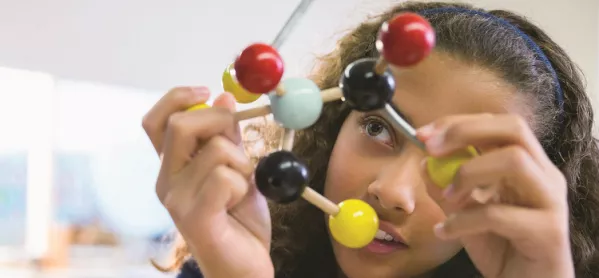I fear last week’s Institute of Physics report Why Not Physics? - A Snapshot of Girls’ Uptake at A level will not change anything. Its recommendations - that schools should routinely monitor by gender the numbers of students progressing to physics A level and make serious efforts to address problems where they exist and challenge gender stereotypes and unconscious biases - will have no effect.
I am not a teacher, academic, politician or a physicist, just the parent of a teenage girl who is just about to sit her A levels, which include physics and maths. She is one of the very cohort looked at in the report, having taken physics GCSE in 2016, one of the 5,669 girls who did so.
I also studied maths, physics and chemistry at A level but did not go on to study any of them at university. Indeed, I have not chosen science as a career path. It looks as though my daughter will go a similar way (despite getting A* at GCSE, being predicted similar at A level), much to the disappointment of her physics teachers.
Another curious similarity is that when I did physics there were two girls and four boys in the class; 40 years on, my daughter is in a class of two girls and eight boys.
This has nothing to do with stereotypes, nothing to do with a perceived lack of confidence (“girls can’t do maths or physics”), nothing to do with a lack of encouragement at home or school, or even lack of awareness of career potential. The reason is the same as it was in 1976: school physics is boring, nothing like the real world of science. I was lucky because at least back then we had more meaningful practical experiments.
My daughter has attended two secondary schools: one that operated the diamond model, teaching girls separately from the boys, and latterly in the sixth form at a boys’ school that admits girls for A level. The gender scenario wasn’t present, the girls were encouraged to be the best they could be, irrespective of subject, yet still few continue to study physics and maths at A level. Why?
‘Be proud to be a geek’
The report misses a key factor in my mind: peer pressure. We are a nation that doesn’t respect capability outside of sport. At school, good sports players are recognised and even lauded; good academics and those interested in science and maths are called “geeks” and “nerds”, even in a female environment. It takes a strength of character to overcome that, hold onto what you believe in, not succumb to the pressure to conform, and be proud to be a “geek”. This needs to change for academic achievement to be viewed on the same level as sport - pupils need challenge and recognition.
Good, enthusiastic teachers are key, but ask yourself: who would want to be a physics teacher if you are unable to be judged outstanding because your class isn’t balanced for reasons outside of your control? Can you imagine the scenario where a headteacher fails to get “outstanding” because of the physics department, and what that might mean for how these teachers are treated? None us likes working in a world where your efforts are not recognised and appreciated. Challenge and recognition are again key motivators.
In my mind, a school can be outstanding even if there is an imbalance in the genders doing physics.
If, as a nation, we want to see more girls in science then we need to stop having irritating gender-specific initiatives. Make it more interesting for all, make it more relevant to the 21st century, make it more groundbreaking in offering opportunities to be part of real research initiatives. Who knows? In doing so, you could even make it more interesting for the teachers, so they stay in the profession and future generations will want to follow in their footsteps.
Steve Greenwood is the parent of an A-level maths and physics student.

